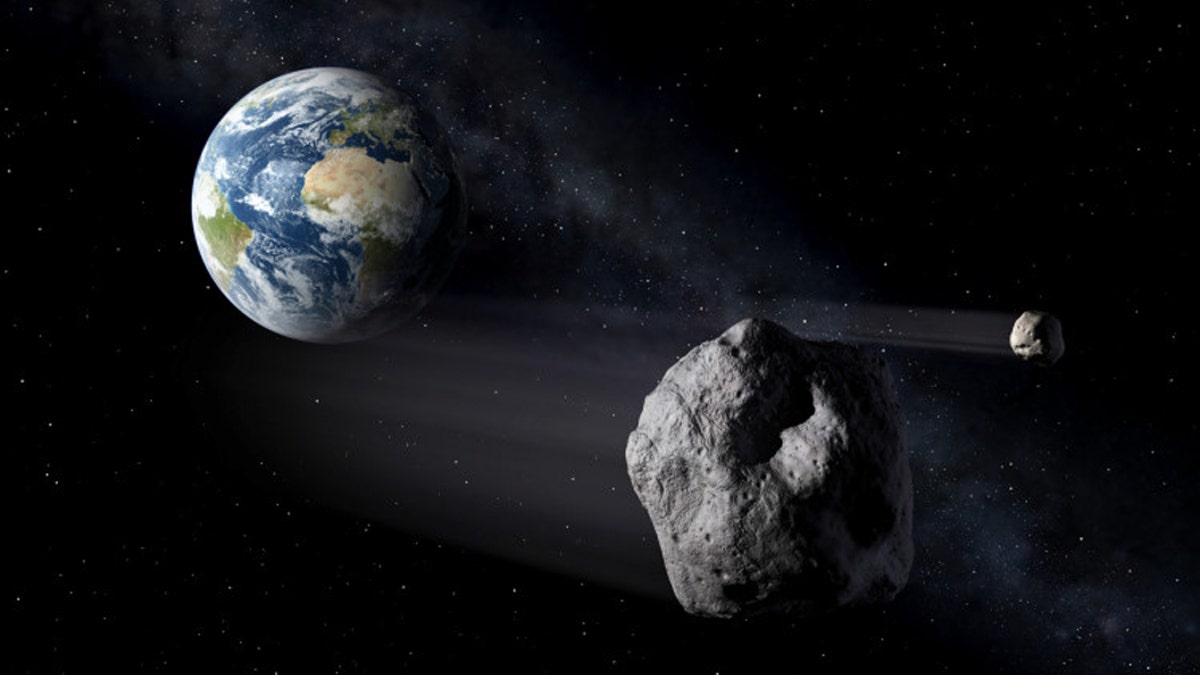Fox News Flash top headlines for August 31
Fox News Flash top headlines are here. Check out what's clicking on Foxnews.com.
An asteroid wider than a basketball court is expected to fly past Earth tomorrow, but it will not pose a threat, NASA says.
Asteroid 2011 ES4 will be "at least" 45,000 miles away from the Earth when it flies by, NASA Asteroid Watch said in a tweet. It is considered "close" on an astronomical level and is closer to the Earth than the moon is. The space rock is also classified as a near-Earth object (NEO).
"Planetary defense experts expect it to safely pass by at least 45,000 miles (792,000 football fields) away on Tuesday Sept. 1," the agency added.
ASTEROID TO FLY PAST EARTH JUST BEFORE ELECTION DAY, NASA SAYS
2011 ES4 was first spotted on March 2, 2011, and was observable for four days, NASA JPL noted. It is considered an Apollo asteroid, meaning it has a wide orbit around the Earth and sun.
A second, much smaller asteroid is also expected to fly safely past Earth on Tuesday, the space agency noted. Asteroid 2020 QG5 will fly past the planet at a distance of more than 1.8 million miles.

Artistic impression of two near earth objects. (Credit: ESA / P. Carril)
Earlier this month, an asteroid the size of a pickup-truck flew within 2,000 miles of Earth, the closest ever recorded. It was missed by NASA until after it flew past the planet.
"Potentially hazardous" NEOs are defined as space objects that come within 0.05 astronomical units (4.6 million miles) and measure more than 460 feet in diameter, according to NASA. According to a 2018 report put together by Planetary.org, there are more than 18,000 NEOs.
NASA unveiled a 20-page plan in 2018 that details the steps the U.S. should take to be better prepared for NEOs, such as asteroids and comets that come within 30 million miles of the planet.
A recent survey showed that Americans prefer a space program that focuses on potential asteroid impacts over sending humans back to the moon or to Mars.
NASA Administrator Jim Bridenstine said in April 2019 that an asteroid strike is not something to be taken lightly and is perhaps Earth's biggest threat.









































